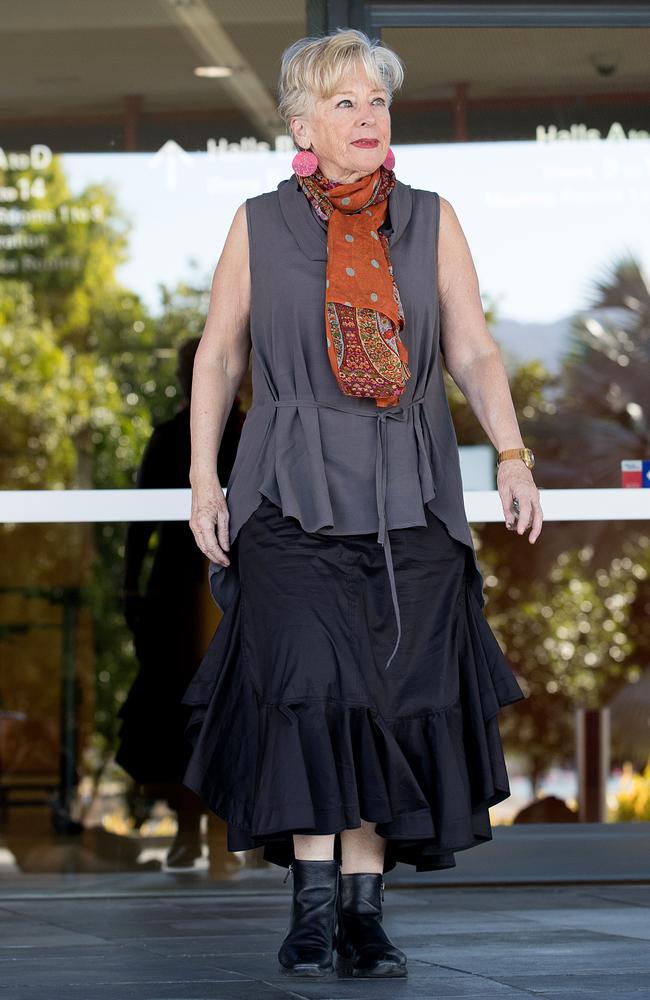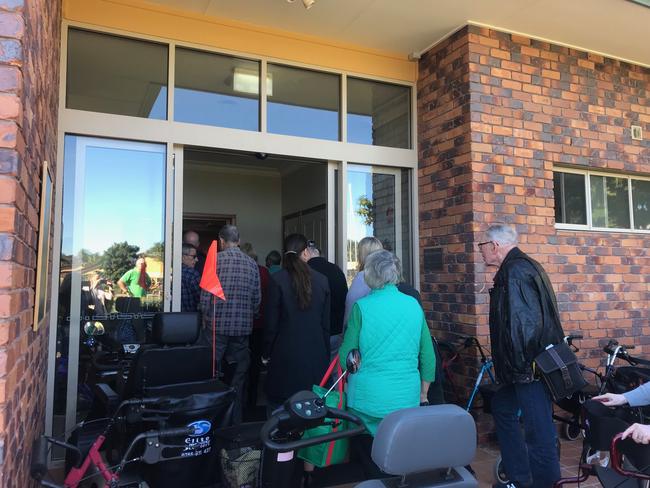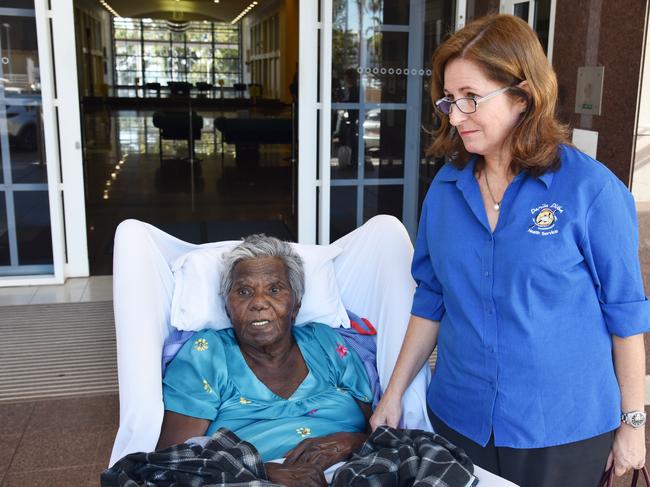Maggie Beer attacks $7 a day meals in aged care homes
Maggie Beer has said spending as little as $7 a day on food for residents of aged care homes is inadequate. HAVE YOUR SAY
Maggie Beer has defended the elderly in aged care homes, saying those spending as little as $7 a day on food for each resident was inadequate.
The popular celebrity chef says that sort of budget is inadequate to prepare the type of food people in aged care facilities should be eating.
“They would have to use processed food, frozen food, frozen vegetables, fish that is usually frozen and imported, not even Australian,” she told the aged care royal commission’s Cairns hearing on Tuesday.
“It’s just impossible.” Beer said a reasonable minimum budget would be $10.50 a day per resident, but for $14 “you can do really good food”.
Chef Nicholas Hall said an aged care facility where he worked had a food budget of $7.20 a day per resident.

MORE AGED CARE NEWS:
Neglect allegations at aged care facility
‘What happened here is a disgrace’
Staff super unpaid in Earle Haven aged care crisis
“It wasn’t great, that’s for sure,” he said of the food.
“You’re having to cut corners. You’re having to use frozen foods, you’re having to use processed foods just to feed the residents.
“At the end of the meal if the resident was still hungry and they wanted more food, there was no more food to give them.” Beer, the Senior Australian of the Year in 2010, established a foundation five years ago with the aim of improving the food experiences for older Australians, particularly those living in aged care homes.
GOLD COAST AGED CARE HOME UNDER FIRE
Ms Beer’s comments come after a subcontractor that ran a Gold Coast nursing home where dozens of elderly patients were left to fend for themselves at the height of a pay dispute will be referred to the royal commission into aged care.
Patients were evacuated from the Earle Haven Retirement Village last week after it was suddenly closed and stripped of equipment and other items like food. HelpStreet, which was contracted to run the home, claims it hasn’t been paid by People Care, which owns the facility.

The subcontractor now says it backs a full investigation by the aged care royal commission, as an ongoing police probe continues into the events which led to the forced closure.
“Serious questions need to be asked about People Care’s business practices,” HelpStreet founder Kris Bunker said.
Witnesses who were present when about 70 frail residents were evacuated last week say the home was stripped of patient records, medication, food, furniture and even cooking equipment.
MUM NEGLECTED IN VICTORIAN AGED CARE HOME
When a blind and deaf woman developed a bone-deep leg wound three months after moving into a Victorian aged-care home, her daughter flew into a rage. Heartbreaking details of the final and pain-filled days of Bertha Aalberts’ life have been revealed during hearings held by the aged care royal commission. Known to her family as Beth, the Dutch post-war immigrant died in hospital in August last year after multiple falls.
The 87-year-old also developed chronic pressure sores and the haematoma on her leg in her short stay at the Avondrust Lodge in suburban Melbourne. Her daughter Johanna Aalberts-Henderson says her mum was cognisant and continent when she moved into Room 17, and could still get around with a walker despite being deaf, legally blind and struggling with heart problems. But her decision to live at the lodge was the start of a rapid decline. Three months later she was dead.
Conflicting evidence was given to the commission about why Mrs Aalberts was treated the way she was.
Mrs Aalberts was taken to hospital after falling and breaking her wrist. That same fall was the cause of large haematoma on a her leg. Senior Counsel Assisting Peter Rozen QC read from records where a doctor treating Mrs Aalberts at the hospital said he didn’t want her to be discharged, and told her daughter he wanted her to get surgery for the wound. But the family didn’t want her to go through with it because they feared she would become further distressed and confused by anaesthetic. Staff at the home were made aware Mrs Aalberts would be returning from hospital with a leg wound that needed attention.
It would later became the most significant aspect of her care needs. Robert Van Duuren, general manager of residential services for MiCare Ltd, which runs the home, said documentation he had seen showed Mrs Aalberts-Henderson did not want surgical intervention.
NT AGED CARE SHOWS WORST TREATMENT
A week of hearings in Darwin ended with a warning that older indigenous people received the worst treatment, and it was up to governments and not just the aged care industry to fix that.
Diabetes was 10 times more prevalent among Aboriginal women than the national rate, with death rates from the disease also much higher.
The problem is compounded by poor quality of life, poverty and remoteness, counsel assisting the commissioner Peter Rozen said on Friday. Mildred Numamurdirdi, an Aboriginal elder from Numbulwar, appeared in person in a portable bed and told how she cried for a month after being forced to move 800km from her home and family to an aged care centre in Darwin last year.

“Can I ask for aged care in remote communities, we don’t have aged care,” she said.
Mr Rozen said the forced removal of older indigenous Australians from family and country to the nearest aged care accommodation, sometimes 800km away, had a “profound impact on quality of life”.
He quoted Danila Dilba Health Service chief executive Olga Havnen’s evidence that “Aboriginal people have by far the most complex health conditions and most complex level of needs but receive the least level of service”. The stark challenges faced by Aboriginal people living in the Northern Territory included poverty, food insecurity, service accessibility, a lack of culturally safe and secure services and distance, Mr Rozens said.
“We heard how we have got senior people with cultural knowledge of particular bits of land in Australia and that has been passed on to them and they’re away from their country,” he said.
Originally published as Maggie Beer attacks $7 a day meals in aged care homes
